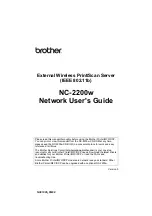
Table 20. Supported hard drive and SSD options for the PowerEdge R730xd system
Fourteen hard drive systems
Up to twelve 3.5-inch hard drives and two optional
2.5-inch back-accessible hard drives.
Eighteen hard drive systems
Up to twelve 3.5-inch hard drives, two optional
2.5-inch back-accessible hard drives and four 3.5-
inch hard drives in the middle hard drive tray.
Twenty six hard drive systems
Up to twenty-four 2.5-inch hard drives and two
optional 2.5-inch back-accessible hard drives.
Up to twenty 2.5-inch hard drives, up to four 2.5-
inch Dell PowerEdge Express Flash devices (PCIe
SSD) and up to two optional 2.5-inch back-
accessible hard drives.
Twenty eight hard drive systems
Up to eighteen 1.8-inch hard drives, up to eight
3.5-inch hard drives, and up to two 2.5-inch back-
accessible hard drives.
Ports and connectors specifications
USB ports
The PowerEdge R730xd system supports:
• USB 2.0-compliant ports on the front panel
• USB 3.0-complaint ports on the back panel
• internal USB 3.0-compliant port
The following table provides more information about the USB specifications:
Table 21. USB specifications
System
Front panel
Back panel
Internal
PowerEdge R730xd One USB management
port/iDRAC Direct
Two 9-pin, USB 3.0-
compliant ports
One 9-pin, USB 3.0-
compliant port
NIC ports
The PowerEdge R730xd system supports four Network Interface Controller (NIC) ports on the back panel,
which is available in one of the following three NIC configurations:
• Four 1 Gbps
• Two 1 Gbps and two 10 Gbps
• Four 10 Gbps
Serial connector
The serial connector connects a serial device to the system. The PowerEdge R730xd system supports one
serial connector on the back panel, which is a 9-pin connector, Data Terminal Equipment (DTE), 16550-
compliant.
35
















































